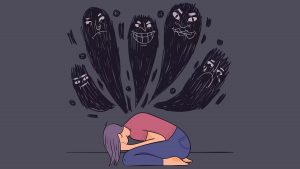Experts call for compassion, early intervention

RESHMI YADAV, OP
Bhubaneswar: Schizophrenia, termed as a chronic mental disorder, affecting how a person thinks, feels, and behaves, continues to be misunderstood and stigmatised across the society, despite of increasing awareness and treatment options.
Experts on mental health urge the public to treat schizophrenia like any other medical condition—one that is diagnosable, treatable, and manageable with the right support. Consultant psychiatrist at Manipal Hospitals SA Idrees explained, “Schizophrenia doesn’t appear overnight. It often develops gradually due to genetic predispositions or environmental stressors. Patients may experience hallucinations, delusions, disorganised speech, or even believe they are someone else—like a saviour or a victim of conspiracies. These are not mere eccentricities. They are signs of a serious mental health condition.”
The World Health Organisation (WHO) estimates that schizophrenia affects approximately 24 million people worldwide, about one person in 300. In India, the prevalence is about 0.3 per cent to 0.5 per cent of the population, which translates to over 4 million people, according to the National Mental Health Survey report. Despite its prevalence, schizophrenia remains a taboo topic. “The stigma is the real illness,” added Idrees. “People are quick to use derogatory terms like ‘mad’ or ‘psycho,’ which isolates patients and delays their recovery. We must normalise mental health treatment, the same way we do for diabetes or hypertension,” he said.
Schizophrenia typically begins between the age group of 20 and 30, and its early symptoms are often mistaken for personality quirks or result of stress. Senior consultant in Neuromedicine at Manipal Hospital Dr Pradyut Ranjan Bhuyana highlighted the biological roots of the disorder and said, “Schizophrenia can stem from genetic factors, chemical imbalances, or structural abnormalities in the brain. These can distort a patient’s perception of reality and trigger severe agitation or fear.”
With the right care—including antipsychotic medication, cognitive behavioural therapy, and family support—many patients live stable, fulfi lling lives. “Continuous psychiatric care is crucial,” quoted Bhuyana. Experts agree that India has made signifi cant strides in making mental healthcare accessible. Cultural awareness through several films like Dear Zindagi, Kartik Calling Kartik, and ‘Chhichhore’ has helped destigmatise therapy and portray mental illness with sensitivity. “Cinema, when used responsibly, can spark conversations and change attitudes,” added Bhuyana. “Let us stop labeling and start listening.
Mental health issues affect children, women, professionals—everyone. Acknowledging pain, sharing stories, and encouraging treatment can make a world of difference,” addressed Idrees, calling for united effort. Experts also urge policymakers, educators, media houses, and citizens to join hands in breaking the silence.
News